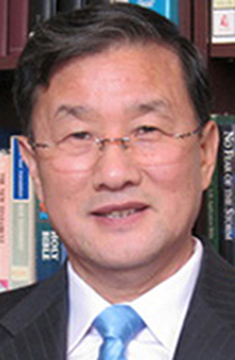
CAMBRIDGE, Mass. (BP) — In the Spring of 1992, a year after I started a new church plant across the Cambridge Police Department in Central Square in Cambridge, Mass., I invited the police commissioner and his public relations officer to a monthly meeting of clergy.
Nearly a dozen pastors were at the meeting to discuss how we could work together to support the police department. We talked about the high rate of crimes around the Central Square neighborhood and the need for citizens to get more involved in keeping the area safe. On that day eight fellow clergy volunteered to serve as police chaplains. The police department showed us their appreciation by giving each of us volunteers a chaplain police badge and even invited us to attend their roll calls.
From time to time we met with the deputy commissioner to hear about community updates and about what the officers were doing around the clock. A few times I got the opportunity to ride in a police cruiser with an on-duty officer to observe the rounds. I listened to their concerns and heard their firsthand experiences of what it was like to give their lives to protect and serve the community daily.
As a police chaplain, I was treated like one of their own. One time a police officer was conducting a random sobriety check at a road block on a bridge. As I approached the officer I showed him my chaplain police badge. He expressed his appreciation and let me through without any further questions.
Another time I had car trouble and had to pull off the highway to wait for a tow truck. A state trooper stopped to ask if I needed assistance. He was so kind and helpful. Again, I pulled out my chaplain police badge and he was pleased to know that he was helping out a police chaplain. We talked for a bit and before departing he asked me if I could write a letter to commendation to his chief. As soon as I got back home I wrote a nice letter to his police chief stating how he went above and beyond the call of duty.
The police department and the chaplaincy was truly a relationship of mutual respect and admiration. I remember that on the last Sunday of each May we had a Police Appreciation Sunday at the Grace United Methodist Church in Cambridge where we invited police officers and cadets to attend the worship service and held a banquet afterward. It was such a blessing to have the police department and local clergy working together and encouraging one another.
I learned a lot spiritually while serving as a police chaplain. I will share two things. First, while I felt a certain identity and authority by association whenever I flashed my chaplain police badge, I considered the basis of our ultimate identity. What is your badge of honor, authority, and identity? As Christians, we should have a certain presence of authority, not based on our good behavior or our high credentials, but purely through our identity in Christ.
Second, as a police chaplain I began to have a greater appreciation for police and first-responders who put their lives on the line every single day. I know of many cases in Massachusetts of police officers falling in the line of duty. Countless fellow officers from the surrounding areas, many from out-of-state, and even some from across the nation gather to attend their funerals as a show of respect and police unity. Of course this does not happen with the typical office worker. The difference is simply that police officers and first-responders deal with matters of life and death. They are willing to sacrifice their lives for others.
Our Lord on the cross was the greatest example of such a sacrificial life. For Jesus said: “For even the Son of Man did not come to be served, but to serve, and give his life as a ransom for many.” Let us not seek to run away from taking up our cross daily and following in our Lord’s footsteps of service and sacrifice.

















